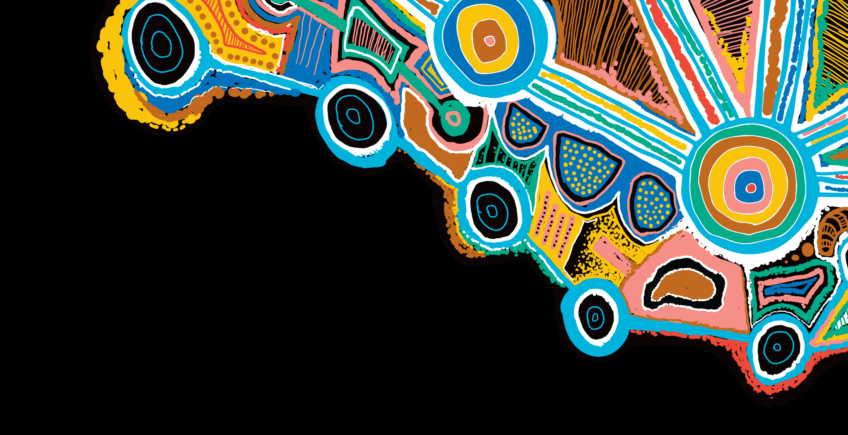Senior clinicians from Aboriginal Community Controlled Health Services (ACCHS) in Western Australia (WA) collectively hold serious concerns about the Western Australian justice system’s treatment of Aboriginal children, and its impact on their health.
The WA Government continues to fail our children. WA has the highest rate of Aboriginal children in detention of any Australian state or territory, with Aboriginal children representing more than three-quarters of all children in Banksia Hill Detention Centre.
The health and wellbeing of our children in detention continues to be neglected, with repeated failures to address signs of distress resulting in the tragic deaths of two precious children. Further to this, the absence of culturally safe comprehensive healthcare in youth detention facilities, persistent concerns regarding custodial staffing levels and appropriateness, and the placement of children in an adult prison—a practice that contravenes the United Nations Convention on the Rights of the Child—have put the health and wellbeing of detained children in jeopardy.
The WA Government has a responsibility under the National Agreement on Closing the Gap to achieve critical targets, including Target 11—to reduce the rate of Aboriginal young people (10 to 17 years) in detention by at least 30 per cent by 2031. If the WA Government is committed to Closing the Gap, it must develop and support measures that keep our children out of detention. Most critically, it must raise the age of criminal responsibility to 14 years. Children under 14 years lack the developmental capacity to fully understand the consequences of their actions in a legal context. Expert advice from Australian paediatricians from the Royal Australasian College of Physicians (RACP) recommends raising the age of criminal responsibility to 14 years in all states and territories. The incarceration of children under 14 years not only falls short of international standards, but also harms children through punitive measures in a setting that fails to provide for their physical, social, emotional and cultural needs. This practice also increases the risk of further contact with the criminal justice system. Urgent measures are needed to support children and their families to avoid detention, including through the prevention, early diagnosis and management of neurodevelopmental disorders.
Aboriginal youth in detention in WA have the highest reported prevalence of Fetal Alcohol Spectrum Disorder (FASD) in a youth justice setting in the world, 36 per cent. These detained children experience very high rates of neurodevelopmental impairment, which impacts their developmental capacity and understanding, with 89 per cent of of children in Banksia Hill Detention Centre found to have severe neurodevelopmental impairment in at least one domain. The WA Government must redirect its focus toward interventions that address the underlying causes of offending behaviour. This includes enabling culturally safe health care providers to identify developmental vulnerabilities early in childhood and provide appropriate intervention and ensuring the provision of accessible child and adolescent mental health services from birth through to adolescence for families who need it. Urgent investment is also required into culturally responsive services and models of care that empower and support children, young people, and families. These measures will reduce the number of children entering detention in the first place, and positively alter their life trajectories.
Children in detention disproportionately experience complex physical and mental health problems. Many Aboriginal children are separated from family and country while detained, negatively impacting their social and emotional wellbeing. Approaches to providing holistic care to Aboriginal children in detention must not only address physical health, but also emotional, cultural and spiritual health. ACCHS deliver comprehensive primary health care for Aboriginal people and communities through the ACCHS Model of Care, a model underpinned by eight determinants required for the wellbeing of Aboriginal people and their communities.
Aboriginal children in detention in WA do not have access to the comprehensive healthcare that they require. We know they do not even have adequate access to basic physical, mental and developmental assessments and interventions. Further to this, the failure of the Department of Justice to ensure appropriate clinical handover and follow-up of children with community-based health services, including ACCHS, upon their release from custodial settings to the community contributes to further harm.
The WA Government must urgently deliver on its promise to appoint an Aboriginal health service to provide culturally appropriate care for young people at Banksia Hill Detention Centre. The WA Government must start to recognise the value of the Aboriginal Community Controlled Health Sector, who stand ready to bring knowledge and expertise to develop and implement service models and solutions to care for these children.
The AHCWA Clinical Leadership Group urge the WA Government to:
- Raise the age of criminal responsibility to 14 years.
- Immediately close Unit 18.
- Invest in Aboriginal-led on-Country alternatives to detention.
- Resource ACCHS to provide culturally appropriate community child development services.
- Invest in adequate numbers of culturally safe and appropriately qualified staff working in youth detention.
- Partner with ACCHS to provide comprehensive primary health care directly to children in Banksia Hill Detention Centre, and improve continuity of care and clinical handover process between custodial settings and community primary health service providers.
Click here to download our Position Statement.

